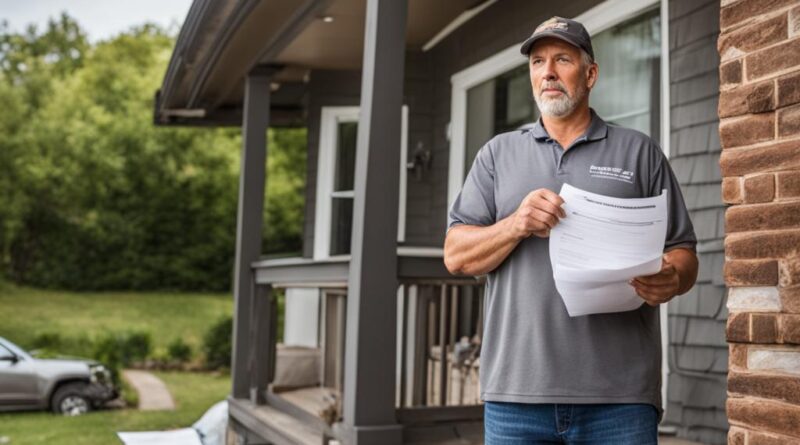Should I Show My Contractor My Insurance Estimate? Find Out Now!
When dealing with home repairs or renovations after damage occurs, it can be a common question to wonder if you should show your contractor your insurance estimate. While there isn’t a definitive answer, there are benefits to sharing your estimate with a professional. By showing your contractor the estimate, they can have a better understanding of the scope of repairs needed and make appropriate adjustments. Additionally, they can negotiate with the insurance company for a better claim amount if there are discrepancies. Sharing the estimate also allows for collaboration between the contractor and insurance company to ensure the best outcome for your home repairs. Ultimately, the decision of whether or not to show your insurance estimate to your contractor is up to you.
Key Takeaways:
- Sharing your insurance estimate with your contractor can help them understand the scope of repairs needed.
- Contractors can negotiate with the insurance company for a better claim amount if there are discrepancies in the estimate.
- Collaboration between the contractor and insurance company can ensure the best outcome for your home repairs.
- It is not mandatory to show your contractor your insurance estimate, but it can be beneficial in making informed decisions.
- Ultimately, the decision of whether or not to show your insurance estimate to your contractor is up to you.
What May Be Included in Your Insurance Estimate
When you receive an insurance estimate, it will include a breakdown of the expected repair costs. This may include items such as:
- Demolition and disposal costs
- Replacement materials
- Permitting and inspection fees
- Estimated labor costs
- Additional necessary repair costs
The estimate will also provide a description of the damage and an assessment of the scope of work. It is important to review the estimate to understand what repairs are covered and to ensure accuracy.
“The insurance estimate is a detailed breakdown of the costs involved in repairing the damage to your home. It provides transparency and helps you understand the extent of the repairs needed. By reviewing the estimate, you can ensure that all necessary expenses are accounted for and that the scope of work aligns with your expectations.”
A thorough understanding of what is included in your insurance estimate empowers you to make informed decisions and effectively communicate with your contractor during the repair process.
Table: Example Insurance Estimate Breakdown
| Repair Cost | Description |
|---|---|
| $4,500 | Demolition and disposal of damaged materials |
| $6,200 | Replacement of roofing materials |
| $1,000 | Permitting and inspection fees |
| $5,800 | Estimated labor costs for repairs |
| $2,500 | Additional necessary repair costs (e.g., water damage remediation) |
| Total: $20,000 |
Example table showcasing the breakdown of costs in an insurance estimate for roof repairs.
Reasons Your Contractor May Need to See Your Insurance Estimates
While it may seem counterintuitive to share your insurance estimate with your contractor, there are several benefits to doing so. By showing the estimate, the contractor can see what is and isn’t included in the insurance coverage and make necessary adjustments. This can help with negotiating for a better claim amount and ensure that all necessary repairs are accounted for. Sharing the estimate also allows for collaboration between the contractor and insurance company to work together in repairing your home. Additionally, showing the estimate can help protect all parties from unintentionally engaging in insurance fraud.
When your contractor reviews the insurance estimate, they can understand the scope of work determined by your insurance company. This enables them to advocate for you in case of discrepancies and ensure that the proper repairs are included. The contractor has experience working with insurance claims and adjusters, making them well-equipped to navigate the process effectively. By sharing the estimate, you allow your contractor to be your advocate and negotiate with the insurance company on your behalf.
Furthermore, sharing the insurance estimate builds trust between you and the contractor. It demonstrates transparency and allows the contractor to provide an honest breakdown of the repairs needed. By aligning their estimate with the insurance claim, both parties can work together to ensure that the project is completed according to the insurance guidelines. This fosters a trustworthy working relationship and ensures that the repairs are done accurately and to the satisfaction of all parties involved.
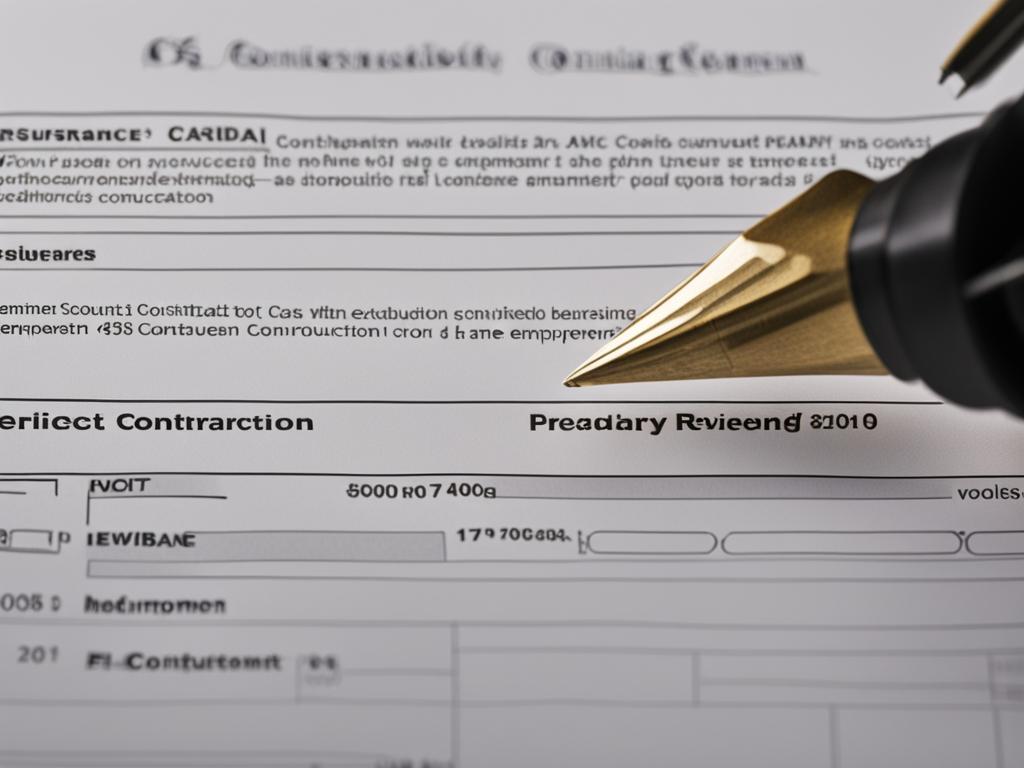
Table: Benefits of Sharing Insurance Estimates with Contractors
| Benefits | Description |
|---|---|
| Negotiation | Allows for negotiation of a better claim amount with the insurance company. |
| Accurate Repairs | Ensures that all necessary repairs are accounted for and included in the contractor’s scope of work. |
| Collaboration | Facilitates collaboration between the contractor and insurance company for a smoother repair process. |
| Protection | Helps prevent unintentional engagement in insurance fraud by aligning the contractor’s estimate with the insurance claim. |
| Advocacy | Enables the contractor to advocate for your best interests in case of discrepancies. |
| Trust | Builds trust between you and the contractor by demonstrating transparency and honesty in the repair process. |
Do I Need to Use the Contractor Suggested by Insurance?
When it comes to choosing a contractor for your home repairs, you may wonder if you are obligated to use the contractor suggested by your insurance company. The answer is no, you are not obligated. While the insurance-suggested contractor may have certain benefits, such as familiarity with the insurance process and a quick turnaround time, the decision ultimately lies with you. It is important to consider your own priorities and preferences when making this decision.
Choosing your own contractor gives you the freedom to select someone who specializes in the specific repairs needed for your home. You can research and hire a contractor who has experience and expertise in handling similar projects. This ensures that the repairs are done correctly and to your satisfaction.
Before making a final decision, carefully review the scope of work and estimated costs provided by both the insurance-suggested contractor and your preferred contractor. Consider factors such as the quality of work, reputation, and any additional services offered. By conducting thorough research and comparing the estimates, you can make an informed decision that best suits your needs and preferences.
In summary, while the insurance-suggested contractor may be convenient, it is not mandatory to use their services. Take the time to evaluate your options and select a contractor who meets your specific requirements. By choosing the right contractor, you can ensure that your repairs are handled professionally and efficiently.
Table: Pros and Cons of Using the Insurance-Suggested Contractor
| Pros | Cons |
|---|---|
| Quick turnaround time | Lack of specialization in specific repairs |
| Familiarity with the insurance process | Potential conflicts of interest |
| Insurance company may vouch for their reliability | Limited options for comparison |
Should Roofers Provide Their Own Estimate Before You Provide the Insurance Estimate?
When it comes to dealing with roof repairs after an insurance claim, it is generally recommended to have your chosen roofer provide their own estimate before sharing your insurance estimate. This allows the roofer to assess the damage independently and provide their professional evaluation. By doing so, they can accurately determine the scope of work required and provide you with a comprehensive estimate. Once your roofer has provided their estimate, you can then share your insurance estimate for comparison and negotiation.
In emergency situations where immediate repairs are needed, it may be necessary to hire a roofer quickly and show them the insurance estimate to expedite the process. However, it is important to exercise caution in these situations and not sign agreements for the entire repair project without careful consideration. It is always best to have a trusted roofer assess the damage before sharing the insurance estimate to ensure accurate and fair pricing.
By having your roofer provide their estimate first, you can also gauge their expertise and professionalism. This will help you determine if they are experienced in the specific repairs needed for your roof and if they will be able to handle the insurance claim in detail. It is important to choose a reputable roofer who can work with your insurance company to get the necessary repairs covered and provide high-quality workmanship.
| Pros of Having Roofer Provide Estimate First | Cons of Having Roofer Provide Estimate First |
|---|---|
| Allows for an independent assessment of the damage | May delay the insurance claim process if discrepancies arise |
| Provides an opportunity to gauge the roofer’s expertise and professionalism | Could result in higher repair costs if the insurance estimate is lower than the roofer’s estimate |
| Ensures accurate and fair pricing for the repairs | May require negotiation with the insurance company if the roofer’s estimate differs significantly from the insurance estimate |
It is important to note that while having your roofer provide their own estimate before sharing the insurance estimate is generally recommended, every situation is unique. It is essential to consult with your insurance company, review your policy, and consider the specific circumstances of your roof repair needs to make the best decision for your situation.
Is It Mandatory to Show the Contractor My Insurance Estimate?
When it comes to sharing your insurance estimate with your contractor, it’s important to understand that it is not mandatory. While some homeowners may choose to provide their insurance estimate to their contractor, especially when signing a contract, it is entirely up to you. However, there are several benefits to sharing the estimate that you should consider.
Showing your insurance estimate to your contractor can help ensure financial safety and make informed decisions about the repairs. By comparing your estimate to the contractor’s own evaluation, you can identify any discrepancies and address them accordingly. This allows for a clear understanding of what work has been approved by the insurance company and ensures that all necessary repairs are included in the contractor’s scope of work.
Sharing the estimate can also help prevent unintentional insurance fraud. By aligning the contractor’s estimate with the insurance claim, you can avoid any misunderstandings or discrepancies that may arise. Additionally, sharing the estimate builds trust between you and the contractor, as they can provide an honest breakdown of the project and ensure that the repairs are completed according to the insurance guidelines.
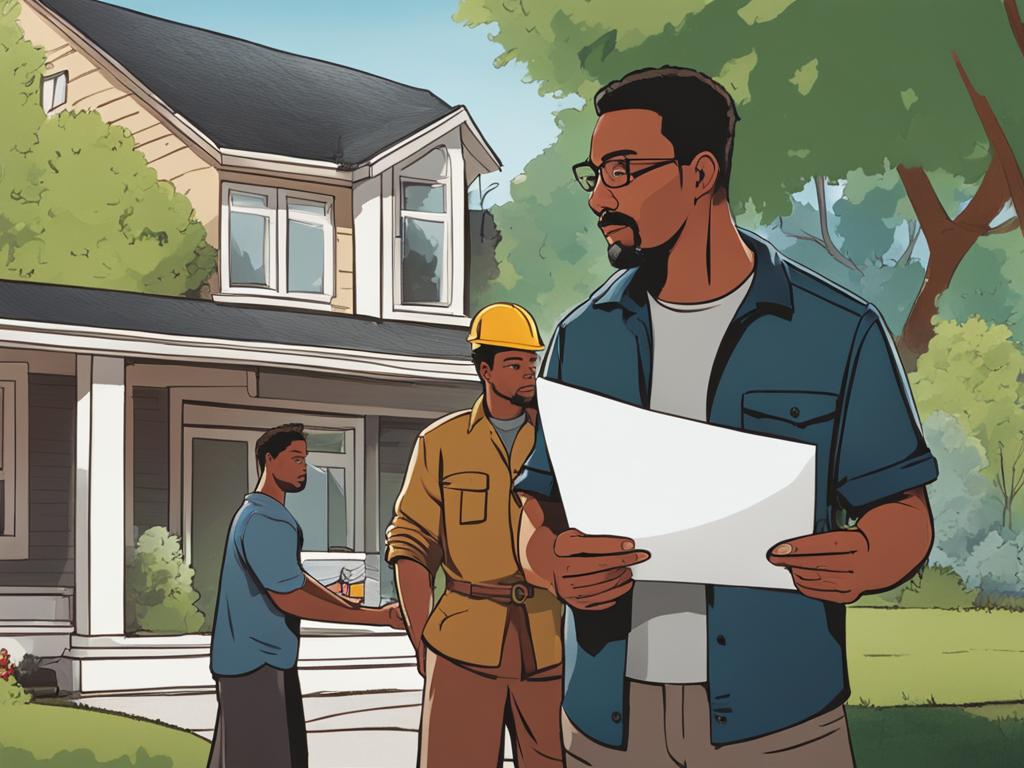
Table: Benefits of Showing Your Insurance Estimate to Your Contractor
| Benefits | Explanation |
|---|---|
| Financial safety | Comparing estimates ensures accuracy |
| Prevention of insurance fraud | Aligning estimates avoids discrepancies |
| Trust-building | Open communication and transparency with the contractor |
By considering the benefits of sharing your insurance estimate with your contractor, you can make an informed decision that aligns with your needs and preferences. Remember, the final choice rests with you as the homeowner, and your priority should be to work with a contractor you trust to complete the necessary repairs.
Why Your Contractor Needs to See the Insurance Estimate
When it comes to repairing or renovating your home after damage, it’s essential for your contractor to see your insurance estimate. This allows them to understand the scope of work determined by your insurance company, ensuring that all necessary repairs are included. By comparing the insurance estimate to their own inspection, your contractor can advocate for you in case of discrepancies with the insurance company.
One of the main reasons your contractor needs to see the insurance estimate is to ensure that the proper repairs are included in their scope of work. Sometimes, insurance estimates may overlook certain necessary repairs, and by sharing the estimate with your contractor, they can identify and address these issues. This collaboration helps to guarantee that your home is restored to its pre-damage condition.
Additionally, your contractor has experience dealing with insurance claims and adjusters. By sharing the insurance estimate, they can navigate the process effectively on your behalf. They can communicate with the insurance company, advocate for any necessary adjustments or revisions, and ensure that the repairs are carried out according to the insurance guidelines. This expertise ensures a smoother and more favorable outcome for your home repairs.
| Reasons Your Contractor Needs to See the Insurance Estimate |
|---|
| Ensure all necessary repairs are included in their scope of work |
| Navigate the insurance claims process effectively |
| Advocate for adjustments or revisions with the insurance company |
| Guarantee that repairs are carried out according to insurance guidelines |
In conclusion, sharing your insurance estimate with your contractor is crucial for a successful home repair process. It allows them to understand the scope of work, advocate for you with the insurance company, and ensure that all necessary repairs are included. By collaborating with your contractor and sharing this important information, you can achieve the best results for your home repairs.

Hiring a Roofer After You Receive an Insurance Estimate
After receiving an insurance estimate, it is crucial to hire a reputable local roofer to handle your roof repairs. The right contractor can make a significant difference in the outcome of your project. Beware of storm-chasing contractors who may provide quick work but fail to deliver quality repairs or adhere to the insurance estimate accurately.
A local roofer who is experienced in handling insurance claims is the best choice. They will work closely with your insurance company to ensure that the necessary repairs are covered and provide high-quality workmanship. By hiring a local roofer, you can have peace of mind knowing that they understand the specific requirements of your area and can address any local building codes or regulations.
When selecting a roofer, consider their reputation, years of experience, and expertise in handling insurance claims. Ask for references and reviews from previous clients to gauge their level of satisfaction. Additionally, ensure that the roofer is licensed, bonded, and insured to protect both you and the contractor in case of any unforeseen incidents.
By hiring a reputable local roofer after receiving your insurance estimate, you can rest assured that your roof repairs will be handled professionally and efficiently, resulting in a safe and secure home.
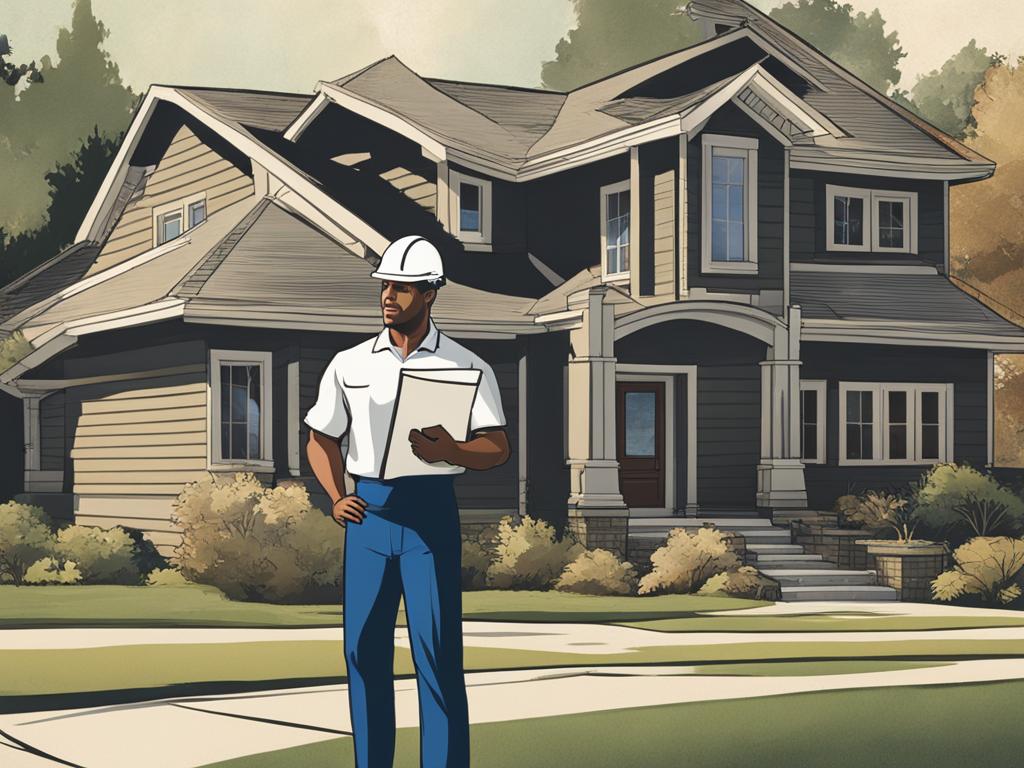
| Benefits of Hiring a Local Roofer |
|---|
| ✓ In-depth understanding of local building codes and regulations |
| ✓ Familiarity with insurance claims process |
| ✓ Ability to negotiate with insurance company for proper coverage |
| ✓ High-quality workmanship and attention to detail |
Can Insurance Cover a Full Roof Replacement?
In some cases, insurance may cover a full roof replacement if the damage is extensive or severe. The decision to cover a full replacement will depend on the specific circumstances and the terms of your insurance policy. Factors such as the cause of the damage and the severity of the weather conditions will be taken into account. It is important to consult with your insurance company and discuss the coverage options for your roof replacement.
Insurance policies can vary, so it’s essential to review your policy carefully to understand the extent of your coverage. Some policies may only cover partial repairs or limit the amount they will pay for a full replacement. Additionally, insurance companies may consider the age and condition of your roof when determining coverage. If your roof already had pre-existing issues or was nearing the end of its lifespan, your insurance company may offer a lower payout or exclude coverage for a complete replacement.
When filing an insurance claim for a full roof replacement, it’s crucial to provide thorough documentation, including photographs of the damage and a detailed estimate from a reputable contractor. This documentation will help support your claim and increase the likelihood of approval. The insurance adjuster will assess the damage and determine if a full replacement is necessary based on their evaluation and the guidelines set by your insurance policy. If approved, the insurance company will provide coverage for the cost of materials and labor involved in replacing your roof.
| Insurance Coverage for Full Roof Replacement | Factors to Consider |
|---|---|
| Extent and Severity of Damage | – Was the damage caused by a covered peril? – Is the damage extensive or severe? – Does the damage affect the entire roof? |
| Age and Condition of Roof | – Was the roof already near the end of its lifespan? – Did the roof have pre-existing issues? – Is the damage a result of normal wear and tear? |
| Insurance Policy Terms | – What are the coverage limits for roof repairs/replacements? – Are there any exclusions or limitations for full roof replacements? – Does the policy require certain documentation or inspections? |
It’s important to note that insurance companies typically cover roof replacements based on the actual cash value (ACV) or the replacement cost value (RCV). ACV takes into account depreciation, meaning the insurance company will factor in the age and condition of your roof when determining the payout. RCV, on the other hand, provides coverage for the full cost of replacing your roof without factoring in depreciation. The type of coverage you have will impact the amount you receive for a full roof replacement.
Before making any decisions about a roof replacement, be sure to consult with your insurance company and a professional roofing contractor. They can guide you through the claim process, help you understand your coverage, and provide expert advice on the best course of action for repairing or replacing your roof.
3 Reasons to Show the Estimate to Your Roofer
When it comes to repairing your home after an insurance claim, showing the estimate to your roofer can be a smart move. By sharing the insurance estimate with your chosen contractor, you can ensure that the necessary repairs are included and avoid any surprises down the line. Here are three key reasons why it’s beneficial to show the estimate to your roofer:
Evaluating Approved Work
By sharing the insurance estimate, your roofer can review the approved work outlined by the insurance company. This allows them to assess whether all the necessary repairs are included and ensure that nothing is left out. It provides an opportunity to cross-reference their own evaluation with the insurance estimate and make any adjustments if needed. This ensures that all approved work is accounted for and that the repairs are completed according to the insurance guidelines.
Preventing Insurance Fraud
Showing the estimate to your roofer helps prevent unintentional insurance fraud. When your roofer sees the insurance estimate, they can align their own estimate with the approved work. This helps ensure that the contractor’s estimate matches the insurance claim, preventing any discrepancies or potential fraud. By maintaining transparency and aligning the estimates, you protect yourself, the contractor, and the integrity of the insurance claim process.
Building Trust and Collaboration
Sharing the insurance estimate with your roofer builds a foundation of trust and collaboration. It allows for open communication and ensures that both parties are on the same page regarding the scope of work. The contractor can provide an honest breakdown of the repairs, addressing any concerns or questions you may have. This collaborative approach fosters a positive working relationship, ensuring that the project is completed to your satisfaction and according to the insurance company’s guidelines.
By showing the insurance estimate to your roofer, you can achieve a smoother repair process, prevent fraud, and establish trust and collaboration. It’s a proactive step that benefits both you and the contractor, ensuring that the necessary repairs are completed accurately and in line with the insurance coverage. So, don’t hesitate to share your estimate and work closely with your roofer for the best possible outcome.
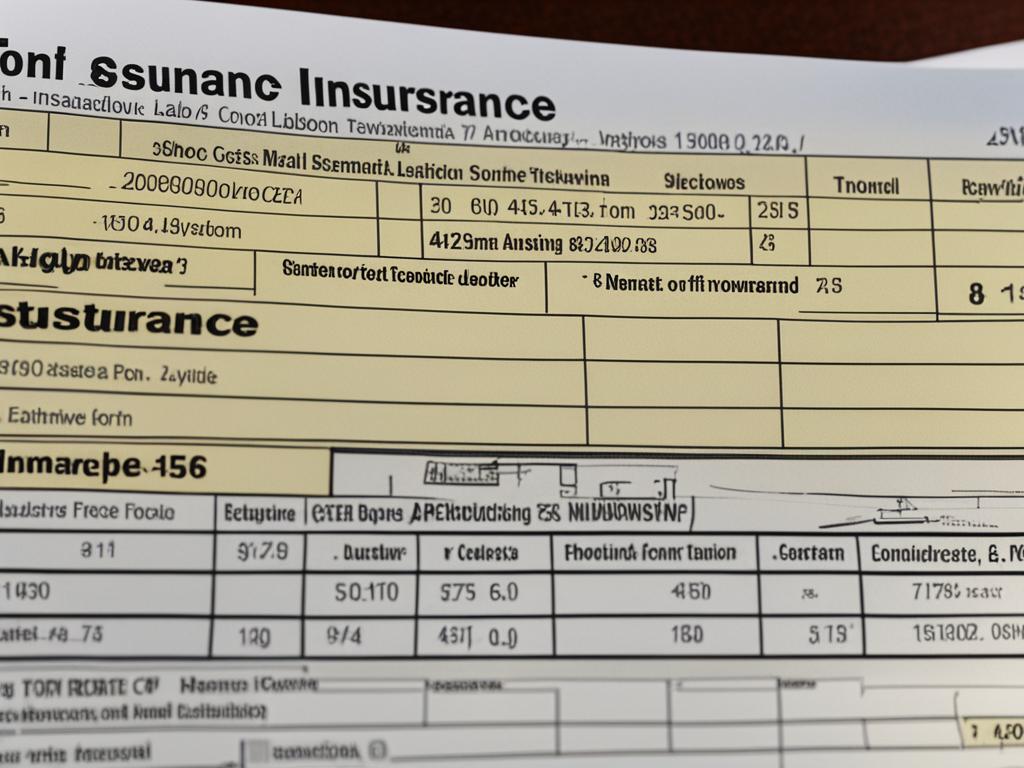
Conclusion
When it comes to deciding whether or not to show your insurance estimate to your contractor, there are several factors to consider. While it’s not mandatory, sharing the estimate can have numerous benefits for both parties involved.
By showing your contractor the insurance estimate, you can ensure that they have a clear understanding of the scope of repairs needed. This allows them to make appropriate adjustments and advocate for you in case of any discrepancies. Collaboration between the contractor and insurance company can also lead to the best outcome for your home repairs.
Furthermore, sharing the estimate helps protect all parties from unintentionally engaging in insurance fraud. By aligning the contractor’s estimate with the insurance claim, you can ensure transparency and build trust in the working relationship.
Ultimately, the decision of whether or not to show your insurance estimate to your contractor rests with you. However, by considering the potential benefits, you can make an informed decision that will lead to the best results for your home repairs.
FAQ
Should I Show My Contractor My Insurance Estimate?
While it’s not mandatory, there are benefits to sharing your insurance estimate with your contractor. It helps them understand the scope of repairs and negotiate with the insurance company if needed. Collaboration between the contractor and insurance company can also ensure the best outcome for your home repairs.
What May Be Included in Your Insurance Estimate?
An insurance estimate typically includes a breakdown of repair costs, such as demolition, materials, labor, permits, and additional necessary repairs. It’s important to review the estimate to understand what repairs are covered and ensure accuracy.
Reasons Your Contractor May Need to See Your Insurance Estimates?
The contractor needs to see the insurance estimate to understand the scope of work, negotiate discrepancies, and advocate for you with the insurance company. Their expertise can help navigate the process effectively and ensure proper coverage.
Do I Need to Use the Contractor Suggested by Insurance?
You’re not obligated to use the contractor suggested by your insurance company. You have the freedom to choose your own contractor who is experienced in the specific repairs needed. Consider the scope of work and your comfort level before making a decision.
Should Roofers Provide Their Own Estimate Before You Provide the Insurance Estimate?
It’s generally recommended to have your chosen roofer provide an estimate before sharing your insurance estimate. This allows them to assess the damage independently. In emergency situations, it may be necessary to hire a contractor quickly and show them the insurance estimate to expedite immediate repairs.
Is It Mandatory to Show the Contractor My Insurance Estimate?
It is not mandatory, especially in the early stages of selecting a repair company. However, once you have chosen a contractor and are ready to sign a contract, it’s good practice to compare your insurance estimate to ensure financial safety.
Why Your Contractor Needs to See the Insurance Estimate?
Showing the insurance estimate to your contractor allows them to understand the scope of work, negotiate discrepancies, and advocate for you with the insurance company. It builds trust and ensures the project is completed according to the insurance guidelines.
Hiring a Roofer After You Receive an Insurance Estimate?
After receiving an insurance estimate, it’s important to hire a reputable local roofer who can handle your insurance claim in detail. They will work with your insurance company to get the necessary repairs covered and provide high-quality workmanship.
Can Insurance Cover a Full Roof Replacement?
In some cases, insurance may cover a full roof replacement if the damage is extensive or severe. The decision will depend on the specific circumstances and the terms of your insurance policy. Consult with your insurance company to discuss the coverage options for your roof replacement.
3 Reasons to Show the Estimate to Your Roofer?
Showing the insurance estimate to your roofer allows them to know what repairs are approved by the insurance company, prevents unintentional insurance fraud, and builds trust through an honest breakdown of the project.
Conclusion
The decision of whether or not to show your insurance estimate to your contractor is ultimately up to you. However, there are benefits to sharing the estimate, such as better collaboration, negotiation, and accuracy in repairs. It also protects against insurance fraud and ensures a trustworthy working relationship with your contractor.

